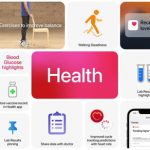Top Lifestyle Trends for 2025: What’s Shaping the Future of How We Live
As we step into 2025, the world is witnessing a rapidly evolving landscape of lifestyle choices and trends. With technology advancing at an unprecedented pace, environmental concerns becoming more pressing, and shifts in social dynamics, our daily routines, work habits, wellness practices, and consumption patterns are all undergoing significant changes. Whether it’s the way we work, eat, travel, or connect, here’s a glimpse into the key lifestyle trends expected to shape the world in 2025.
1. Hybrid Living: Blending Home, Work, and Leisure
In 2025, the traditional boundaries between home, work, and leisure will continue to blur. The pandemic-induced shift toward remote work is not just a temporary phase—it’s becoming the new normal.
- Work-From-Anywhere (WFA): With the rise of digital nomadism, people are increasingly looking to combine work and travel. Offices are becoming obsolete for many, and we’ll see more flexible work arrangements, with employees choosing where they want to live and how they want to work. Co-living spaces, equipped with high-speed internet, shared amenities, and flexible contracts, will be more popular.
- Smart Homes: Home technology will become even more intuitive. AI-powered home assistants, connected appliances, and IoT devices will offer seamless integration between work, rest, and recreation, making home life more comfortable and efficient.
2. Sustainable Living: Green is the New Black
Sustainability is no longer just a buzzword—it’s an essential part of modern living. In 2025, eco-consciousness will permeate every aspect of life, from energy use to fashion and transportation.
- Energy-Efficient Homes: Solar panels, geothermal heating, and smart thermostats will be standard features in homes, making them more energy-efficient and self-sustaining. In addition, homes will increasingly be designed with sustainability in mind, featuring green roofs, recycled materials, and water-saving technologies.
- Circular Economy: With growing concerns about waste and resource depletion, the circular economy will continue to gain traction. This model focuses on reusing, recycling, and refurbishing products rather than creating new ones. Brands will adopt eco-friendly packaging, while consumers will embrace second-hand, upcycled, and repairable goods.
- Plant-Based and Lab-Grown Foods: The food industry will see a surge in plant-based diets and lab-grown meat. Advances in food technology will make plant-based alternatives more delicious and accessible, while lab-grown meat will become more widely available, reducing the environmental impact of animal agriculture.
3. Mental Health and Wellness Revolution
Wellness will continue to be a cornerstone of modern living, but in 2025, the focus will shift more toward mental and emotional well-being.
- Holistic Mental Health Practices: In 2025, the stigma around mental health will be a thing of the past. People will actively engage in holistic mental health practices, combining traditional therapy with practices like mindfulness, breathwork, and digital detoxes.
- AI-Powered Mental Health Tools: With the rise of AI, mental health support will be more personalized and accessible. AI-driven apps will provide users with real-time mood tracking, personalized meditation sessions, and even virtual therapy bots to help manage stress and anxiety.
- Biohacking and Personalized Wellness: Advances in wearable tech, such as smartwatches that track sleep, heart rate, and stress levels, will provide personalized insights for optimal wellness. Biohacking—using science and technology to enhance the human body’s performance—will be a major trend, with people seeking ways to improve longevity and mental sharpness.
4. The Rise of Metaverse Living
The virtual world is becoming increasingly intertwined with our physical reality. By 2025, the metaverse will be a key element of everyday life, transforming how we socialize, shop, work, and experience entertainment.
- Virtual Socializing: The way we interact with friends, family, and colleagues will be redefined through immersive virtual environments. Instead of simple video calls, we will socialize in virtual spaces using avatars, attending virtual concerts, or even enjoying meals together in fully interactive VR settings.
- Virtual Goods and NFTs: NFTs (non-fungible tokens) will gain even more traction, becoming a major part of the digital economy. Digital fashion, virtual homes, and even virtual real estate will be traded, creating new ways to buy and sell in the virtual world.
- Virtual Workspaces: Companies will develop fully immersive virtual offices, where employees can collaborate, meet, and interact in digital spaces. These VR environments will feel just like physical offices but with the flexibility to work from anywhere.
5. Redefining Travel and Mobility
With environmental concerns and the rise of technology, the way we travel will undergo a major transformation in 2025.
- Electric and Autonomous Vehicles: The transportation sector will be dominated by electric and autonomous vehicles. With climate change in mind, the adoption of electric cars, buses, and trains will skyrocket. Car-sharing and ride-hailing services powered by electric fleets will replace traditional ownership models for many consumers.
- Hyperloop and High-Speed Rail: Long-distance travel will also become more efficient. High-speed rail systems and potential new modes of transportation, like the hyperloop, will reduce travel time significantly, making commuting between cities easier and more eco-friendly.
- Space Tourism: While still in its infancy, space tourism will become a more attainable experience for the wealthy elite in 2025. Companies like SpaceX and Blue Origin will continue to push the boundaries of space exploration, offering short trips to the edge of space.
6. AI-Driven Personalization
Artificial Intelligence (AI) will become even more ingrained in daily life, with smart assistants and personalized recommendations improving everything from shopping to health care.
- AI Shopping Assistants: Shopping experiences will be entirely personalized. AI will help consumers find exactly what they need, predict what they might want, and even help with sustainable purchasing decisions, recommending eco-friendly products based on individual preferences.
- Healthcare Innovation: AI will revolutionize health care by providing more personalized treatment plans. From predictive diagnostics to AI-powered surgery, the healthcare industry will become more efficient and accessible.
- Personalized Education: In education, AI will enable highly customized learning experiences, adapting to students’ needs, strengths, and weaknesses. This will provide a more efficient and effective way of learning for all ages, from children to adults.
7. Experiential Consumption: Value Beyond Products
In 2025, people will place greater value on experiences over material goods. The shift from ownership to access will be one of the defining characteristics of the decade.
- Subscription-Based Lifestyles: Instead of purchasing single-use items, consumers will prefer subscription services that give access to a variety of experiences. These might include curated travel packages, fitness programs, gourmet food deliveries, or even access to exclusive digital content.
- Social Impact and Purpose-Driven Consumption: Consumers will increasingly make purchasing decisions based on brands’ social and environmental values. Products and services that align with sustainability, equality, and social justice will resonate with younger generations.
8. The Gig Economy and Flex Jobs
The gig economy will continue to thrive in 2025, but it will evolve as workers seek more flexibility, autonomy, and work-life balance.
- Freelance Work and Side Hustles: By 2025, many workers will embrace freelancing as their primary form of income. The traditional 9-to-5 model will become less common, with many people balancing multiple side hustles or freelance jobs to tailor their careers to their lifestyles.
- Platform-Based Work: The growth of platform-based services (such as freelance marketplaces) will expand, offering a wider variety of work opportunities. Remote work platforms will become more specialized, offering tools for managing clients, projects, and teams.
Final Thoughts
As we head into 2025, our lifestyles will be shaped by technology, sustainability, and a strong desire for balance, well-being, and personalized experiences. From hybrid living and AI-driven wellness to the expansion of the metaverse and greener living, these trends represent a future where technology empowers individuals to live more flexible, conscious, and connected lives. Embracing these changes will help us navigate the future with a sense of purpose, innovation, and mindfulness.










